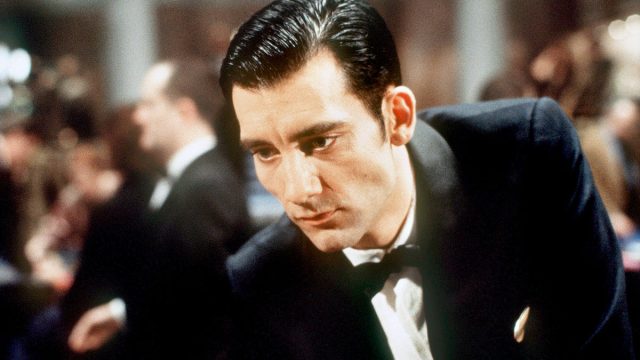Moody, emotionally distant, and possessed of a claustrophobic and sleazy atmosphere, Croupier feels like it could be a Patricia Highsmith novel. Clive Owen–buttoned-up and chilly–plays Jack Manfred, an aspiring writer who keeps an analytical, often contemptuous distance from the world he inhabits. Jack takes a job as a croupier, and it’s work he’s done before; no matter what he says, calmly overseeing other people’s wins and losses and expertly embodying the house is probably his true vocation. He says this is for research, but his professional pride says otherwise. His life at the rundown casino is a high-wire act of knowing all the odds, all the time, both of the games and the people around him. He has to know which risks are worth taking.
Of course, Jack eventually encounters both a glamorous woman in trouble (Alex Kingston) and a daring scheme that should net him considerable rewards for very little effort or danger. In most noir stories, that would all spell his inevitable doom, but Croupier convinces us–mostly through Owen’s superb, coolly hard-to-like performance–that cynical Jack might be smart enough to pull through. His hardened edge redirects the film’s tension in interesting ways, making this a psychological noir where the suspense is less about the protagonist’s life–or even his soul–and more about his fate in the sense of his place in the world. We want to know whether Jack will turn out to be croupier or punter, winner or loser, author or character … and all of those questions get answered in complex, haunting ways. It’s a movie that’s all the better for taking place on a small scale, existing as a story of weird intensities, rigorous worldviews, and overlapping milieus that all happen to exist in the same hothouse environment. As I said–and as Jack himself certainly knows–it would make a great novel. But it makes an even better movie.
Croupier is streaming on Netflix.

